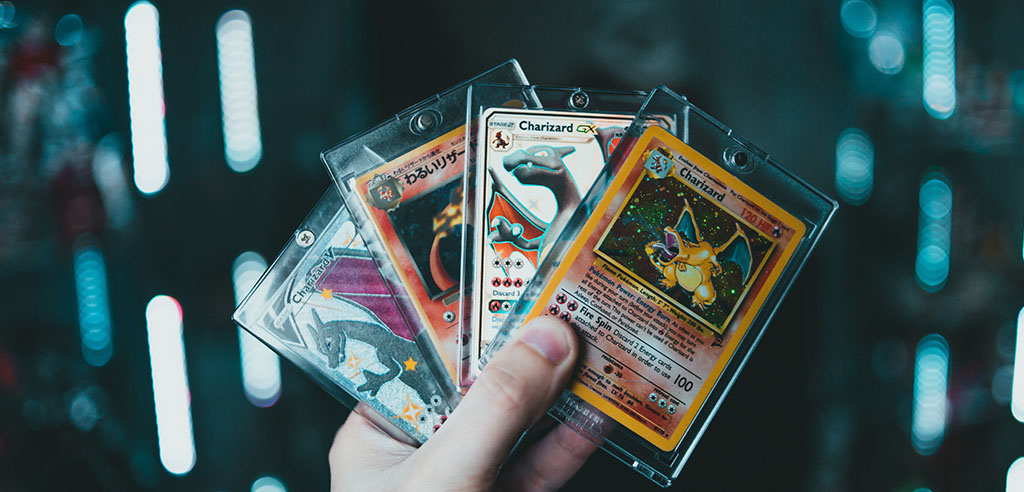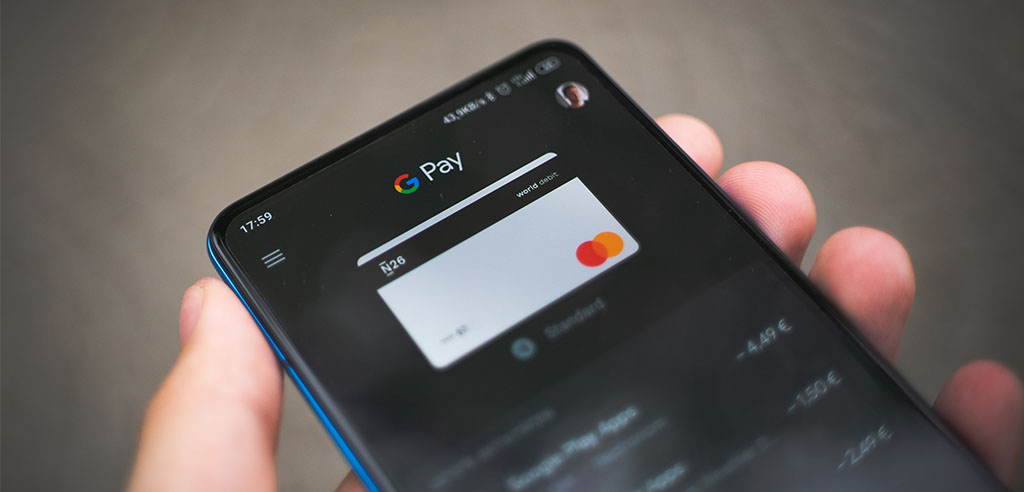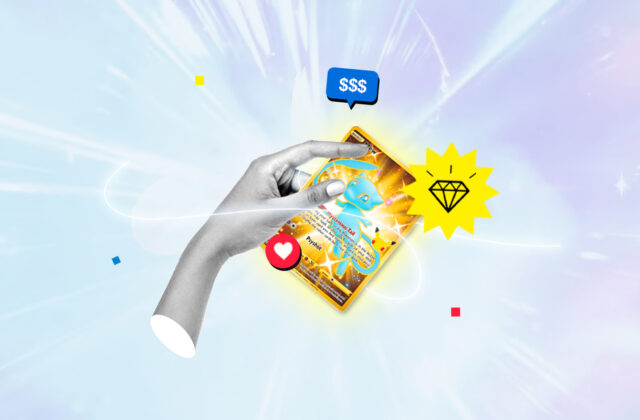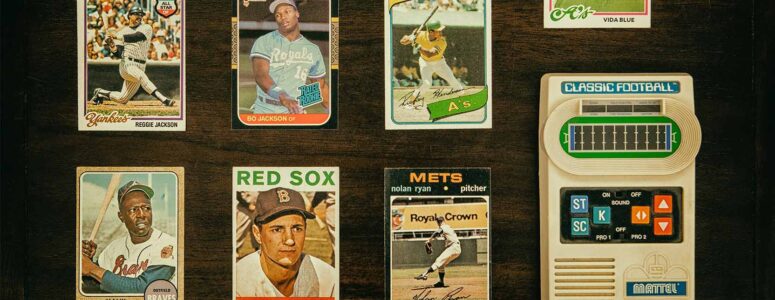If you have old Pokémon cards sitting around at home (or you’re still into Pokémon and would enjoy hunting for new ones), you’re missing out on an opportunity to set up a lucrative side hustle. Read on to find out how you can turn Pokémon cards into cash.
01. Can you really make money selling Pokémon cards?
Most Pokémon cards aren’t worth much money, but some are very valuable
Believe it or not, there’s real money to be made selling Pokémon cards. However, to make it worthwhile, you’ll need to put time and energy into researching which cards are valuable.
Who buys Pokémon cards?
Pokémon—and the trading card game that accompanies it—has been around for decades, but its popularity hasn’t diminished over the years. Plenty of people are still buying, selling, and trading Pokémon cards. Here’s who and why:
- Collectors: A collector’s aim is to find rare cards and preserve them. They might do this purely out of appreciation for the cards or because they see them as investments (i.e., they believe the value of rare cards will continue to increase).
- Players: Professional card players want cards so that they can compete in matches and tournaments for points and other prizes.
- Fans: Some people buy Pokémon cards simply because they’re fans (either of the Pokémon franchise or of gaming and pop culture in general) and they get a thrill from owning collectibles and other memorabilia.
- Resellers: The goal of resellers is to profit by buying Pokémon cards and then selling them to collectors, players, or fans. If you turn selling cards into an ongoing side hustle, you’ll fall into this category yourself.
Note that people don’t always buy Pokémon cards for themselves. Sometimes they buy the cards as birthday or holiday gifts for family members or friends who are interested in Pokémon.
How much money can you make selling Pokémon cards?
Most Pokémon cards aren’t worth much money at all—under a dollar each, and potentially just a few cents.
Rarer cards sell for $15–$30, and highly collectible cards sometimes sell for hundreds of dollars, provided they’re in good condition. Some cards sell for thousands, but they’re an extreme minority, and the odds of you having or finding any are low.
The upshot is that your money-making potential with this side hustle depends on whether:
- You just want to get rid of old cards: Assuming you have a decent-sized collection lying around, you might be able to get several hundred dollars for it as a one-time sale. The majority of your cards will fetch pennies, so most of your profits will probably come from a handful of valuable cards.
- You regularly buy cards for your own use: If you’re a player who’s still actively buying cards and you just want to sell spares that you don’t plan on using, you probably won’t be able to turn a profit, but you might be able to break even on your hobby, which is a nice feeling.
- You want to be a reseller: If you see yourself scouting for deals on rare cards and flipping them, your earning potential will potentially be in the range of hundreds of dollars per month—but you’ll have to do a lot of work to earn this kind of money.
02. How to turn a profit selling Pokémon cards
Look for deals on rare cards and get them graded so they’ll appeal to collectors
At its core, selling trading cards of any type is a simple activity. You have to find valuable cards, figure out exactly how much they’re worth, and then sell them for a profit.
Where to find Pokémon cards to sell
If you’re selling cards you already have on hand or that you’re acquiring in the course of pursuing your hobby, you don’t need to worry about this step. However, if you want to be a reseller, you need to know where to find good deals.
In general, you don’t want to buy new (unopened) packs of cards; you want to look for used cards that are selling for below their value, which means you’ll be able to buy low and sell high.
You can buy used Pokémon cards in the following places:
- Hobby shops
- Thrift stores
- Local garage sales
- Online marketplaces, such as eBay or Facebook Marketplace
Many resellers buy cards in bulk (buying 50 or more at the same time) in the hopes that a few hidden gems will be mixed in. However, once you have a feel for what sorts of cards are valuable, you can also scout out individual cards that are mispriced.
How to determine the value of your Pokémon cards

When you’re selling trading cards, the most important thing is to figure out how much they’re worth. You can get a preliminary idea with these strategies:
- Research online: Use platforms like eBay, TCGPlayer, or other card-selling websites to find cards and compare their prices.
- Ask in online communities: Join social media groups and trading card forums. Of particular note is the subreddit /r/PokeInvesting, which is dedicated to speculating on Pokémon cards. You can read discussions about card values and ask experts and collectors for advice.
- Visit local card shops: Go in person to local Pokémon shops or other collectible stores and talk to the employees, who can likely give you some guidance.
Getting Pokémon cards graded
You can use the strategies above to educate yourself, but no matter how good you get at spotting rare cards, you’re going to need to get them graded before you sell them.
Grading is a type of professional card appraisal. A reputable evaluator will assign the card a rating or a “grade,” giving it an expert’s stamp of approval. They’ll also verify that the card isn’t counterfeit by identifying distinct features, like holograms.
Grading helps you determine the value of your cards, and—equally importantly—it ensures you can sell them for their true value, since most serious collectors won’t be willing to plunk down money on a card that hasn’t been graded.
In some cases, it’s possible to buy a card for $50 or so, have it graded (which usually costs somewhere in the vicinity of $20), and then sell it for hundreds of dollars.
There are several organizations that grade Pokémon cards:
- Professional Sports Authenticator (PSA): This is a company that grades trading cards on a 10-point scale, which is widely recognized as the industry standard. Their grades are the most widely respected, and they should be your first stop.
- Beckett Grading Services (BGS): This service isn’t as widely respected as PSA’s, but most collectors still take their grades seriously.
- Collectibles Grading Service (CGS): As with BGS, a mint grade from this service isn’t quite as big a deal as one from PSA, but it can still substantially increase the value of a card.
If you have cards that you want to get graded, check out PSA’s blog post on how to send in your cards. Their instructions also apply to BGS and CGS. The addresses you can send your cards to are listed in the table below.
Professional Card Grading Service Addresses
| Organization Name | Mailing Address |
|---|---|
| Professional Sports Authenticator | Via United States Postal Service (USPS): P.O. Box 6180 Newport Beach, CA 92658 Via FedEx: 1610 E. St Andrew Place Ste. 150 Santa Ana, CA 92705 |
| Beckett Authentication Services | 2700 Summit Ave, Ste 100, Plano, TX 75074 |
| Collectibles Grading Service (CGC Cards) | P.O. Box 4701 Sarasota, FL 34230 United States |
Factors that influence how much a Pokémon card will sell for
You need to know what makes a Pokémon card valuable so that you know what you should snap up and have graded.
Many factors determine the worth of each Pokémon card, which is why the difference in price from one card to another can be drastic. To collect cards with high values, focus on these characteristics:
- Rarity: As you’d expect, the rarer a card, the more valuable it is. The rarest cards include holographic, first edition, and promo cards.
- Edition or set: First edition cards or those from specific sets are rarer and can be worth more. Keep an eye out for special edition cards from events, tournaments, or other promotions as well.
- Condition: The better a card’s condition, the higher its value. Cards in mint or near-mint condition are naturally the most valuable.
- Market trends: Card values change over time, so you’ll need to stay updated on trends in the market. Supply and demand, special events, or new releases can also affect prices.
- Historical significance: Collectors are often most interested in original base sets, cards released early on in Pokémon’s history, or those that greatly influenced the culture and direction of the game.
In addition to these factors, the artwork on a card can also influence its value. People might just like the way it looks and prize it accordingly.
Lastly, it’s worth repeating the importance of grade and authenticity. Cards that have been graded will sell for more (unless they’re so common that their worth is negligible).
Which Pokémon cards are most valuable?
The most expensive Pokémon card ever sold is the 1998 Pikachu Illustrator, which fetched a staggering $5.275 million. 1 Making that much with your side hustle isn’t realistic, but there are a few types of cards that are generally understood to be the most valuable among Pokémon collectors. These cards will likely earn you the most money:
- First edition: These cards were the first to be released and all have a logo indicating as much at the bottom left corner of the image.
- Holographic: Often called “holos,” these cards have shiny (rather than matte) images.
- Shadowless: These look much like first-edition cards, including not having a shadow along the right-hand border of the image. However, they have no first-edition logo.
- Unlimited: These cards have a shadow on the right-hand border, and those from the base set have no set symbol at the bottom right of the image.
- Full-art: Instead of containing the image of the Pokémon in a box, full-art cards have illustrations covering most of the card’s face. They also often show particularly powerful Pokémon.
Some of these cards are pretty rare, so your chances of finding them will be low. However, if you stay on top of your research and keep looking, you never know when you might come across an extraordinarily uncommon card.
03. Where to sell Pokémon cards for cash
You can sell Pokémon cards in many online marketplaces you’re probably already familiar with
Let’s say you’ve identified valuable cards in your own collection or found hidden gems in a thrift store. You’ve also had them professionally graded. At this point, the only step left is to sell them.
There are many options for where to sell your Pokémon cards, including both online and offline marketplaces.
Selling online

Selling Pokémon cards online is often the easiest and quickest way to get started. Below you’ll find the best places to set up profiles and start making money. Some are for selling all types of goods, while others are specifically for card traders.
General-purpose online marketplaces
These are some of the best general marketplaces:
- eBay: This is a popular site to sell pretty much anything. You can list up to 250 items with no listing fee each month, although there’s a final value fee for each sale you make. 2
- Etsy: What you can sell on Etsy is limited. They don’t allow reselling, meaning you can’t sell anything that you did not make or design yourself. The exception is vintage items, defined as items that are twenty years or older. You can sell Pokémon cards here as long as they’re vintage, but you may be asked to verify their age. 3
- Mercari: This site boasts a quick and easy listing process, seller and shipping protection, and instant payouts (for a $3 fee).
- OfferUp: You must download the mobile app to sell on OfferUp, but they make it fast and simple to list items. Buyers in your area can message you in the app to negotiate prices and arrange meetings.
- Facebook Marketplace: Facebook is especially useful for selling to buyers in your area, as you’ll often meet in person to hand over the items. Communications stay on the platform.
- Craigslist: This local classifieds site lets you list a variety of items for sale, and then buyers contact you directly by email or phone number.
Gaming and trading card marketplaces
If you want to target a more specific audience, try selling on these sites that are aimed at gamers and card collectors:
- TCGPlayer: You can sell to an established community of trading card buyers with this online marketplace.
- Troll and Toad: You can sell directly to Troll and Toad or to other buyers by joining their merchant program and letting them handle all of your customer service (including shipping) so you can focus on managing your inventory and prices.
- Cardmarket: When selling with this site, you’ll need to ship items to buyers yourself. You’re also limited to offering only two of each product unless you open a professional seller account for your card-selling business.
Marketplaces with buylists
Some online marketplaces have “buylists,” which are lists of cards they’re willing to buy from you and the prices and conditions they’ll accept.
You can browse their buylist, select the cards that you want to sell, send them off for approval, and then get paid.
These sites all feature a buylist system:
- Card Cavern: This site has very strict policies on the conditions of the cards they’ll accept, so make sure to adhere to their requirements.
- CCG Castle: You can choose to be paid in cash or in store credit.
- Cape Fear Games: Similarly, this site lets you choose cash or site credit for each sale.
- Dave & Adam’s Card World: They pay via business check, PayPal, or gift cards (usable on their own site).
- Sell2BBNovelties: You can add individual cards from their buylist or sell a bulk collection for a flat rate. However, they only accept cards in mint condition.
All of these marketplaces require you to create an account and set up preferred payment methods. Many also charge listing and sales fees you’ll need to account for. Some may have other requirements that are specific to each site, so be sure to read their terms and conditions.
Auction websites
Online auction platforms are yet another option to sell your Pokémon cards. Look into:
- Heritage Auctions: To consign with this auction site, you need to fill out an inquiry. If your cards are accepted, they’ll facilitate the bidding process and pay you via check once the auction is finished.
- Catawiki: This site also has experts who will facilitate the entire process, from vetting your submissions to showcasing them so they get great prices. They charge fees when you make a sale.
Online forums and communities
You can also try online forums that are specific to Pokémon. For instance, /r/PKMNTCGTrades is a community on Reddit that allows people to list cards for sale. You can also find groups on Facebook that are dedicated to this.
You’ll need to learn and adhere to each community’s rules, which may include using specific payment methods or featuring a timestamp in your post to prove you actually have the item.
Because you’re dealing directly with strangers on a platform that’s less regulated than a traditional marketplace, there’s a higher risk on these sites of falling prey to scams or having your personal information compromised. Take great care to protect yourself when negotiating in these forums.
Selling offline

If you don’t want the hassle of registering for seller accounts online or just prefer to do things in person, there are plenty of ways to sell offline.
Collectible card shops
You can try to sell your cards at local game stores. Some comic book stores buy and sell Pokémon cards as well.
The main benefit of this strategy is that you’ll receive cash immediately and without the fuss of shipping.
However, because the store needs to make a profit, they’ll usually expect you to mark down the price, often by as much as 50%. Try visiting several stores and comparing their offers before settling on one. If you get significantly better offers from some stores, you can point that out at their competitors in the future as a haggling tactic.
Card shows and conventions
Card shows and conventions are great venues to sell your Pokémon cards. Some even have PSA experts on-site to inspect and grade cards.
If you have a large collection to sell, you can reserve a vendor table and attract many potential buyers. If you only have a few cards, you can approach vendors at the event and see if they’re interested in buying the ones you have.
Local auctions
Consider listing your cards with local auction houses. Try using AuctionZip to search for auctions in your area. You can search by keyword or zip code and filter by category.
Once you find an auction that might fit, browse the auctioneer’s website for more information or contact the auctioneer with the email provided.
04. More tips for selling Pokémon cards
Follow the rules of your chosen platform and watch out for scams
Once you’ve researched the value of your cards and decided where to sell them, you’ll want to do everything you can to ensure that you make as much money as possible. Here are some tips for making the most out of this side hustle:
- Check selling fees: Each platform will have its own fees, so be sure you understand when and how much you owe so you can correctly calculate your profits.
- Create a good listing: Clean your cards thoroughly before photographing them. Try to do so in good lighting, with a good camera. Write detailed descriptions highlighting what makes them special. Use relevant keywords to make it easy for potential buyers to find your listing, and if you’ve had them graded, make sure to clearly indicate what company did so and what the grade was.
- Follow shipping and packaging guidelines: Your chosen platform may have certain shipping requirements to follow. If you’re shipping directly to the buyer, make sure to package the cards safely so they don’t get damaged in transit. Most sellers place their cards in sleeves or cardboard, although high-value cards in mint condition should be packaged in hard-shelled cases.
- Get shipping protection: When it’s available, insure your package in case it’s lost or damaged. This also provides tracking information and proper documentation if issues arise.
- Practice effective communication: Be clear and polite when communicating with potential buyers. The more positive their experience, the more likely they will be to buy from you or recommend you to others.
How to avoid scams

As with conducting any business, make sure to take steps to protect yourself from scams and other dangers. Here are some guidelines to keep you safe:
- Use trusted payment methods: PayPal, Google Pay, and Venmo are secure payment options that you can use if you don’t want to exchange card or bank information. You can also accept cash, but it’s not usually a good idea to take personal checks or wire transfers.
- Meet in safe locations: If you’re delivering the cards in person, meet in a public place with plenty of people around. Tell a friend or family member where and when you’re meeting the buyer.
- Keep thorough documentation: Make sure all transactions and interactions are recorded in writing so that you have evidence if a claim is ever made against you for any reason.
If you follow these tips, you’re sure to start raking in cash from selling Pokémon cards, regardless of whether you get out there to look for deals or you stick to old cards you already have on hand.
Article Sources
- TCGplayer. "The 11 Most Expensive Pokémon Cards Ever" Retrieved September 4, 2023.
- eBay. "Selling fees" Retrieved September 4, 2023.
- Etsy. "Seller Policy (Effective from December 1, 2022)" Retrieved September 4, 2023.







